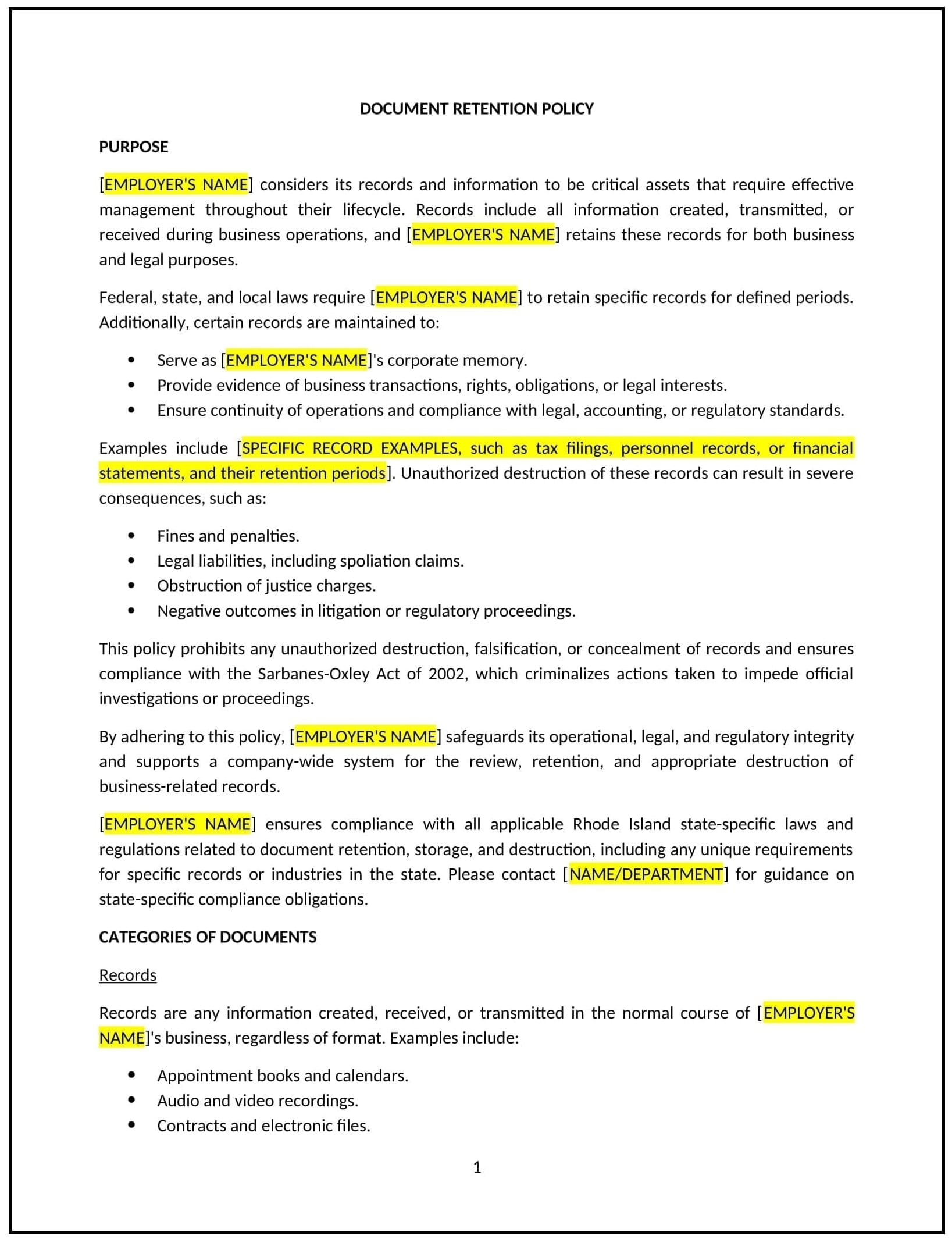Document retention policy (Rhode Island): Free template
Got contracts to review? While you're here for policies, let Cobrief make contract review effortless—start your free review now.

Customize this template for free
Document retention policy (Rhode Island)
This document retention policy is designed to help Rhode Island businesses manage the storage, retention, and disposal of records. It outlines guidelines for maintaining compliance with legal and operational requirements.
By adopting this policy, businesses can reduce clutter, protect sensitive information, and align with recordkeeping standards.
How to use this document retention policy (Rhode Island)
- Define record types: Specify categories of documents, such as financial, legal, or employee records.
- Set retention periods: Outline how long each type of record should be retained.
- Address disposal procedures: Describe secure methods for destroying records, such as shredding or digital deletion.
- Train employees: Educate staff on the importance of proper recordkeeping and following the policy.
- Review and update: Assess the policy annually to ensure it aligns with evolving business needs and legal standards.
Benefits of using this document retention policy (Rhode Island)
This policy offers several advantages for Rhode Island businesses:
- Reduces clutter: Ensures only necessary records are retained, freeing up storage space.
- Protects sensitive information: Minimizes the risk of unauthorized access or data breaches.
- Aligns with legal requirements: Ensures compliance with recordkeeping laws and regulations.
- Builds trust: Demonstrates to stakeholders that the business values data security and compliance.
- Aligns with best practices: Supports adherence to recordkeeping standards.
Tips for using this document retention policy (Rhode Island)
- Communicate the policy: Share the policy with employees and include it in training programs.
- Monitor compliance: Regularly review recordkeeping practices to ensure adherence to the policy.
- Address issues promptly: Take corrective action if records are mishandled or improperly disposed of.
- Update regularly: Assess the policy annually to ensure it aligns with evolving business needs and legal standards.